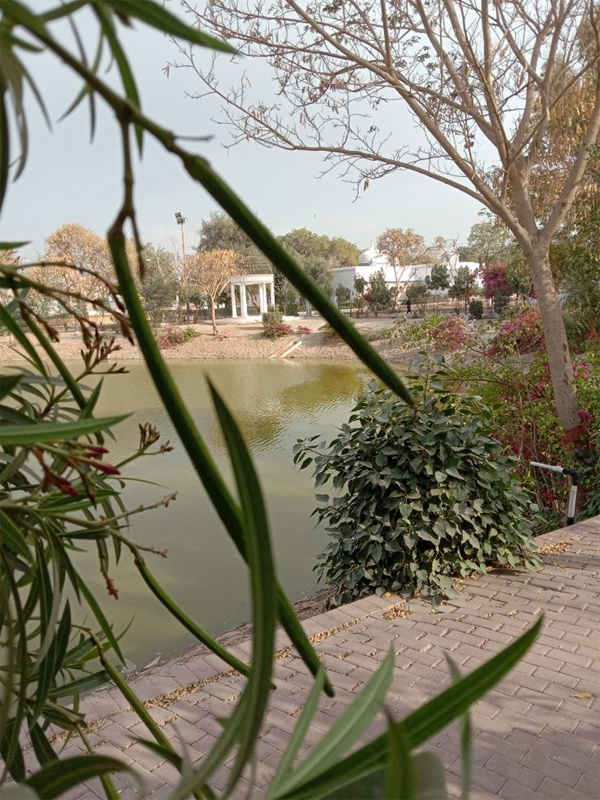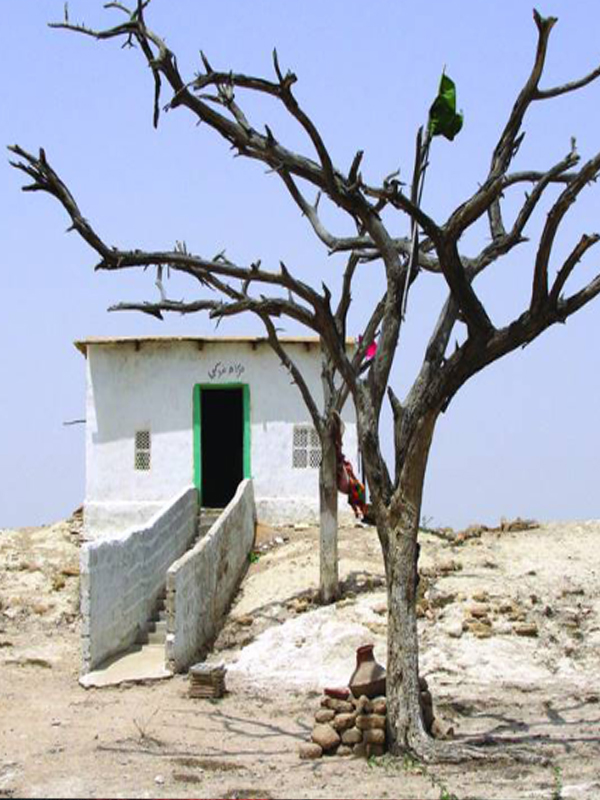Mokhi and Matara: A Journey of Sacrifice and Transformation
Have you ever come across the following lines of Sindhi poetry?
مَتارا مَرِي ويا، موکي! توکي! تون نَہ مَرين،
ڪيھِي پَرِ پَرين، ڏُکي ڏاتارَنِ ري؟
That, in fact, is a couplet _bait_ of Shah Abdul Latif Bhittai. One of translations of the bait is as follows:
“The fearless Mataras drank the poisoned wine and perished,
O Mokhi, why do you still linger?
What remains for the grieving when the selfless givers endure such trials?”
Shah Abdul Latif Bhittai, one of the greatest Sufi poets of Sindh, wove profound philosophical ideas into his poetry, often cloaked in folklore and allegory. Among his many memorable verses, this bait reflects the story of the Mataras and Mokhi, a narrative steeped in themes of audacity, sacrifice, and spiritual resilience. While simple in appearance, the bait holds within it layers of meaning that resonate deeply with Shah’s vision of the human condition and the spiritual path.
The Tale of the Mataras and Mokhi
As the folklore goes, the Mataras were a fearless group of individuals who frequented Mokhi’s tavern. In a remarkable turn of events, Mokhi once served them wine laced with snake poison. Rather than succumbing to the poison, the Mataras survived, their audacious spirits unbroken. They returned to Mokhi, undeterred, demanding the same poisonous wine they had been served before. This story, while fantastical in its details, serves as a powerful metaphor in Shah’s poetry, where every action—serving the poison, drinking it, dying, and surviving—holds a deeper spiritual significance.
In Shah’s bait, the lament of Mokhi—why she remains alive when the Mataras have perished—challenges not only her role in the narrative but also the human tendency to avoid sacrifice. Mokhi’s survival becomes a symbol of inaction or fear, contrasting sharply with the transformative journey of the Mataras.
The Symbolism of the Poisoned Wine
The poisoned wine, central to this tale, is a potent metaphor for life’s trials and spiritual challenges. To drink the wine is to accept the hardships, pain, and self-sacrifice that are intrinsic to the journey toward enlightenment. The Mataras’ act of drinking this wine symbolizes their courage to embrace suffering as a path to transcendence. For Shah Bhittai, such audacity is not mere recklessness; it is a necessary step in the annihilation of the self (nafs), a key Sufi concept.
Survival after drinking the poison signifies a transformation—a state where worldly fears no longer hold power. The Mataras return, demanding more of the poison, a gesture that underscores their readiness to transcend human limitations repeatedly. In contrast, Mokhi’s reluctance to partake in this act of daring leaves her questioning her own survival, a poignant reminder of the stagnation that comes with fear or inaction.
The Role of Mokhi: A Mirror to Humanity
Mokhi, the tavern keeper, plays a dual role in this narrative. On one hand, she is the enabler, serving the poison to the Mataras. On the other, she represents those who witness acts of courage and transformation but hesitate to partake in them. Her survival becomes a question of purpose: what is the value of life when it lacks the courage to embrace sacrifice? Shah Bhittai’s challenge to Mokhi is, in essence, a challenge to all of humanity—to examine whether we are merely spectators in the spiritual journey or active participants.
Shah Bhittai’s Philosophy in the Bait
The bait’s philosophical undertones align with Shah Abdul Latif Bhittai’s broader themes of selflessness, perseverance, and spiritual evolution. The Mataras, with their fearless pursuit of transformation, embody the ideal seeker on the Sufi path. Their survival after drinking poison symbolizes the death of ego and the awakening of the true self. Meanwhile, Mokhi’s role reminds us of the tension between attachment to worldly comfort and the daring required to transcend it.
This tension is universal, cutting across time and cultures. It speaks to anyone who has ever faced a choice between safety and growth, between stagnation and transformation. Shah’s poetry calls us to embrace the trials of life with open hearts, to find meaning in sacrifice, and to rise above the fear of change.
Lessons from the Bait
The bait of Shah Abdul Latif Bhittai offers timeless lessons. It reminds us that true courage lies in facing life’s challenges head-on, even when the cost is high. The Mataras teach us that the path to self-realization is not without pain, but it is through this pain that one achieves spiritual liberation. Mokhi, on the other hand, is a mirror reflecting the part of us that clings to comfort, fearing the unknown.
The poisoned wine becomes a symbol of life itself—bitter yet transformative. Shah Bhittai’s call is not to avoid this wine but to drink deeply, to let it reshape us, and to emerge stronger and more enlightened. In doing so, we, like the Mataras, can transcend the ordinary and embrace the extraordinary.
Conclusion
Through the story of the Mataras and Mokhi, Shah Abdul Latif Bhittai delivers a profound message about courage, sacrifice, and transformation. The bait challenges us to question our role in life’s spiritual journey: Are we like the Mataras, fearless and transformative, or like Mokhi, hesitant and reflective? By weaving folklore with universal truths, Shah’s poetry transcends its time, inviting every generation to confront the trials of existence with boldness and grace.


